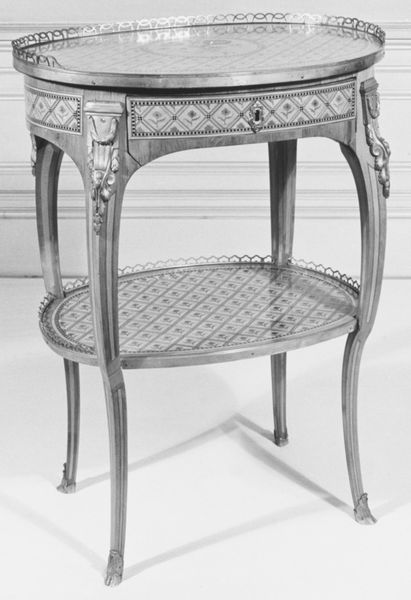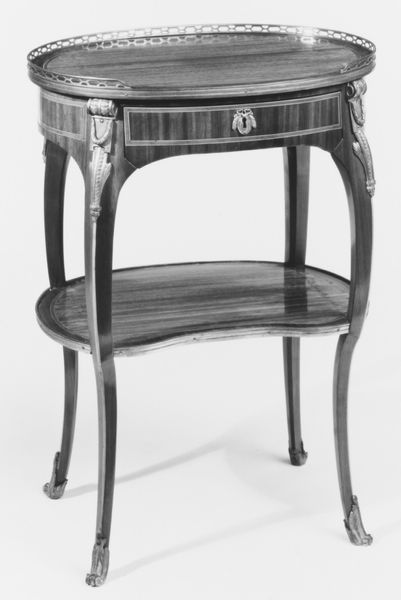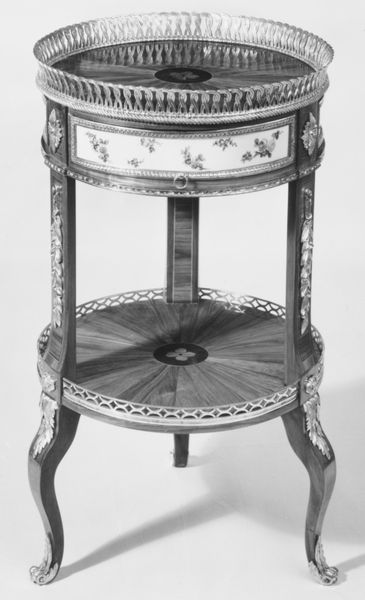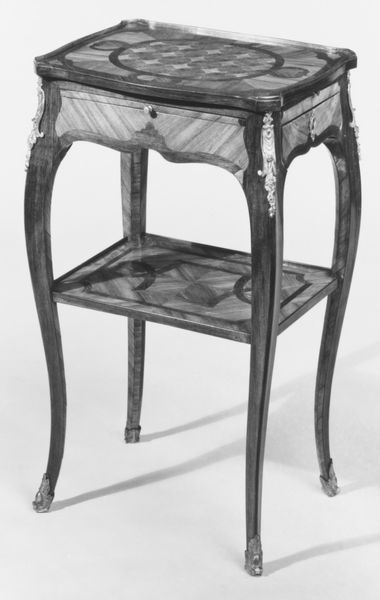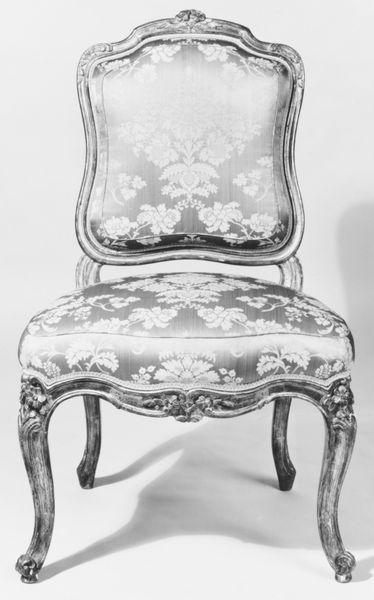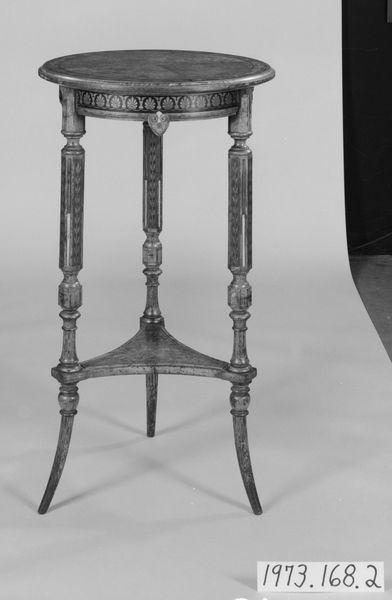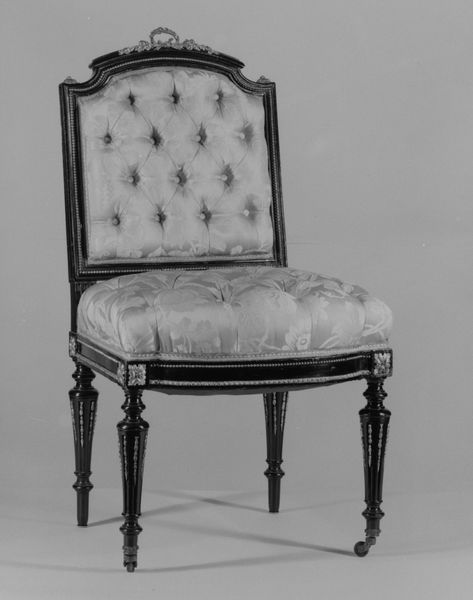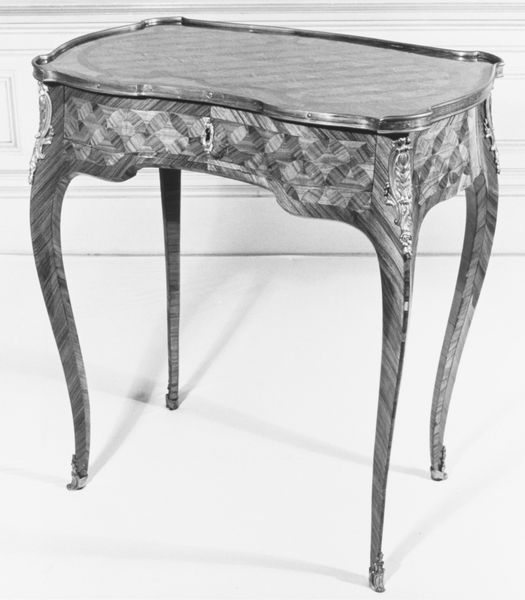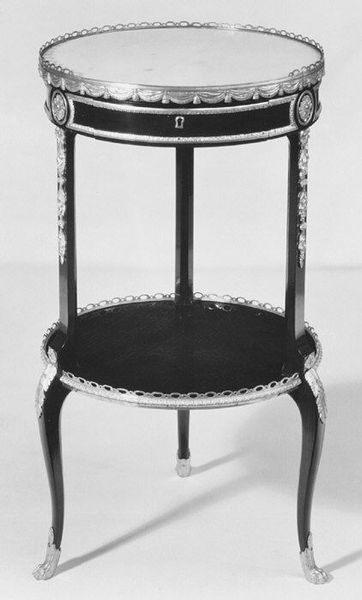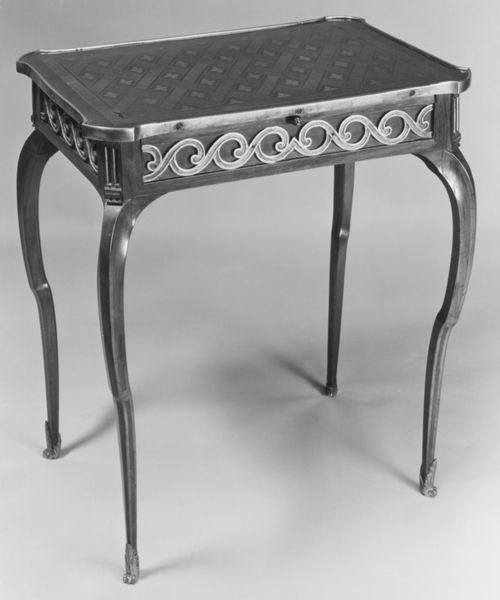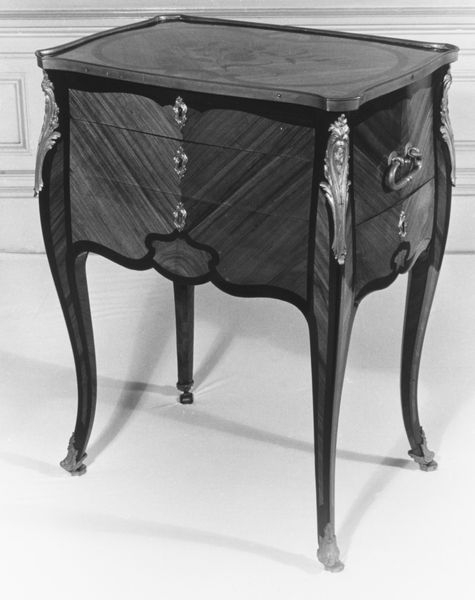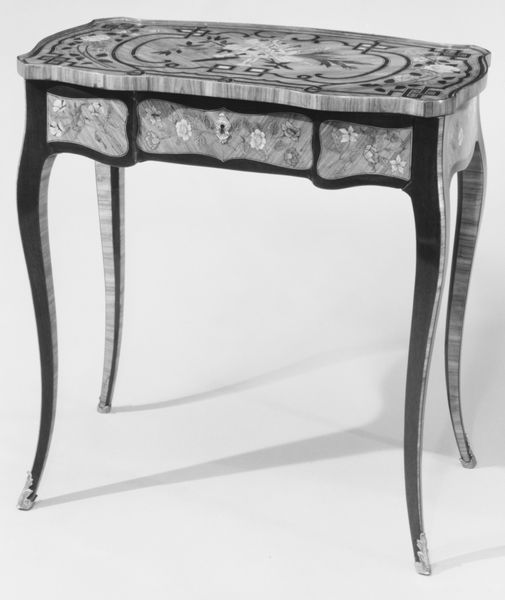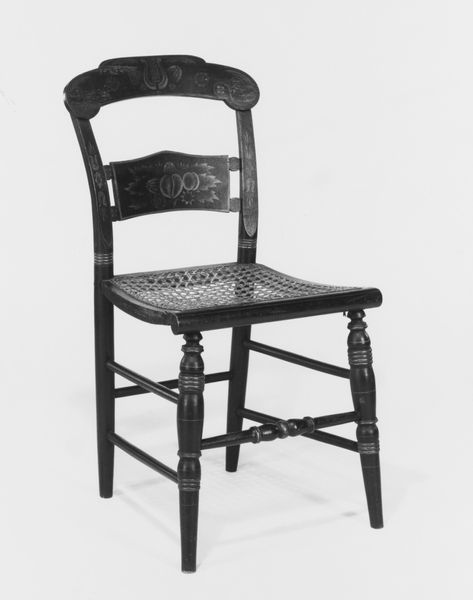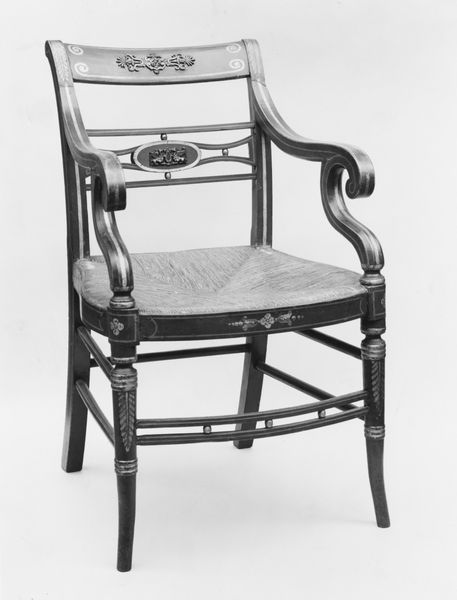
Dimensions: 28 3/16 × 17 1/4 × 13 1/16 in. (71.6 × 43.8 × 33.2 cm)
Copyright: Public Domain
This work table was made by Martin Carlin in eighteenth-century France using wood, porcelain, and gilt bronze. The dark wood frame contrasts with the delicate, colorful porcelain plaques inset at the table's center. Carlin was one of the great ebenistes—cabinet makers—of his day, and this piece shows his mastery of refined materials. The form is elegant, with slender legs and a two-tiered structure, but it’s the contrast between the wood, the refined metalwork, and the painted porcelain that really catches the eye. The porcelain was likely sourced from the Sèvres factory, a key producer of luxury goods at the time. Consider, too, the social context in which this table was made and used. Small and portable, it was intended for a wealthy client, and the objects they might have placed on it. Decoration and function were never far apart. And it's precisely by looking at the materials, making, and context of this piece, that we can fully appreciate its significance, moving beyond conventional art historical distinctions between fine art and craft.
Comments
No comments
Be the first to comment and join the conversation on the ultimate creative platform.
